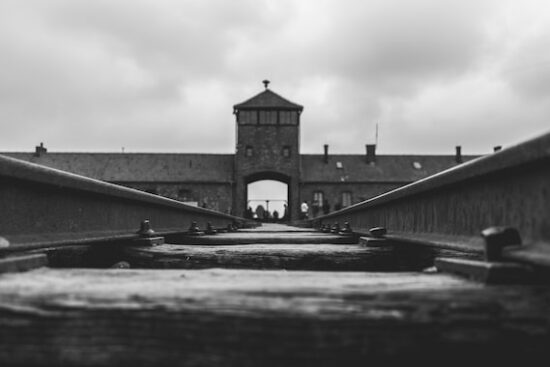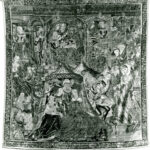Adolf Hitler was a prominent political figure in the 20th century, best known as the leader of Nazi Germany from 1934 to 1945. Born on April 20, 1889, in Braunau am Inn, Austria-Hungary, Hitler rose to power through his charismatic oratory skills, fervent nationalism, and manipulation of political circumstances. His regime, marked by fascist ideologies and aggressive expansionist policies, led to the outbreak of World War II and the Holocaust, resulting in the deaths of millions of people.
Early Life and Education
Adolf Hitler was the fourth of six children born to Alois Hitler and Klara Pölzl. His father worked as a customs officer, and his mother was a housewife. Hitler’s childhood was spent in Braunau am Inn, and later in Linz, Austria. His father’s strict discipline and his mother’s affectionate nature had a significant impact on his upbringing.
After finishing primary school, Hitler attended Realschule in Linz but eventually dropped out at the age of 16. He moved to Vienna, where he aspired to become a painter. However, he faced rejection from the Vienna Academy of Fine Arts twice, leading to a period of poverty and homelessness.
World War I and Political Beginnings
In 1914, Hitler moved to Munich, Germany, and enlisted in the German Army when World War I broke out. He served as a soldier and was wounded twice during the war. Hitler was deeply affected by Germany’s defeat and the harsh terms of the Treaty of Versailles, which he believed humiliated the nation.
In the post-war years, Hitler joined the German Workers’ Party (DAP), a far-right nationalist political group, which he later transformed into the National Socialist German Workers’ Party (NSDAP) or the Nazi Party. Hitler’s powerful public speaking skills and nationalist propaganda quickly gained him support and recognition among disaffected Germans who were seeking a strong leader.
Rise to Power
In 1923, Hitler attempted to seize power in the Munich Beer Hall Putsch, a failed coup against the Bavarian government. He was arrested and sentenced to prison, during which time he wrote his autobiographical manifesto, Mein Kampf (My Struggle), outlining his political ideology and plans for Germany’s future.
After his release from prison in 1924, Hitler rebuilt the Nazi Party, focusing on legal means to gain power. The Great Depression of the 1930s provided an opportunity for Hitler, as widespread economic hardship fueled discontent and resentment in Germany. Through effective propaganda campaigns, he portrayed the Nazis as the solution to Germany’s problems, promising economic recovery, national pride, and the scapegoating of minority groups for the nation’s troubles.
In 1933, Hitler was appointed as Chancellor of Germany by President Paul von Hindenburg. Utilizing the Enabling Act, which granted him emergency powers, Hitler consolidated his authority and transformed the democratic Weimar Republic into a totalitarian regime.
The Nazi Regime and World War II
Hitler’s rule was characterized by the suppression of political dissent, the persecution of minority groups, and the creation of a cult of personality. He implemented policies that restricted civil liberties, curtailed press freedom, and marginalized Jews, Romani people, LGBTQ+ individuals, disabled individuals, and political dissidents. Hitler’s ideology of Aryan supremacy and anti-Semitism led to the systematic extermination of six million Jews and millions of others during the Holocaust.
In foreign policy, Hitler pursued an aggressive expansionist agenda, aiming to establish a “Greater Germany” through territorial conquest. He orchestrated the annexation of Austria (Anschluss) in 1938 and the occupation of Czechoslovakia in 1939. These actions ultimately led to the outbreak of World War II when Germany invaded Poland in 1939, prompting Britain and France to declare war.
Hitler’s military strategies initially brought Germany victories, including the conquest of France and the Low Countries. However, the tide turned against Germany with the failed invasion of the Soviet Union in 1941 and the entry of the United States into the war in 1941, following the Japanese attack on Pearl Harbor. As the war progressed, Hitler’s leadership became increasingly erratic, and his decision-making led to significant military setbacks for Germany.
Downfall and Legacy
In the final months of the war, as Allied
forces closed in on Berlin, Hitler retreated into his bunker beneath the city. On April 30, 1945, realizing that defeat was imminent, he committed suicide alongside his longtime companion, Eva Braun.
Adolf Hitler’s legacy is one of infamy and horror. His totalitarian regime caused immense human suffering, including the deaths of millions in concentration camps and the devastation of Europe during World War II. The Holocaust stands as one of the darkest chapters in human history, a systematic genocide carried out under Hitler’s leadership.
It is essential to study and remember Hitler’s life and actions as a stark reminder of the dangers of extremism, intolerance, and the abuse of power. By understanding his rise to power and the circumstances that allowed him to manipulate an entire nation, we can work towards preventing such atrocities in the future.
Sources
Adolf Hitler – Quotes, Speech & Birthday (biography.com)
Adolf Hitler | Holocaust Encyclopedia (ushmm.org)







